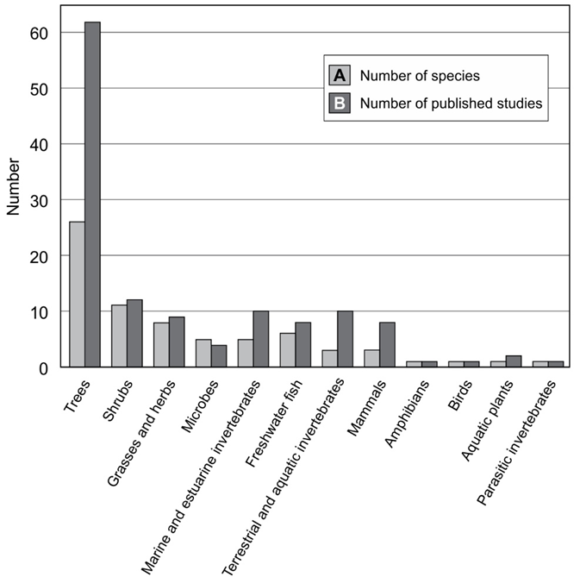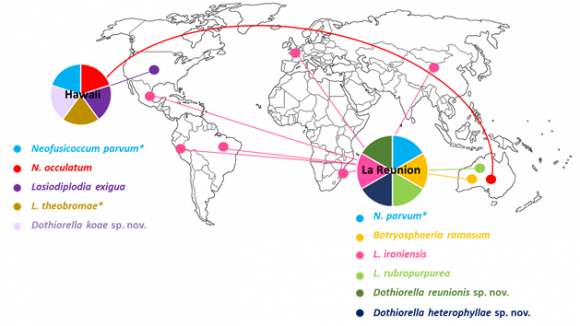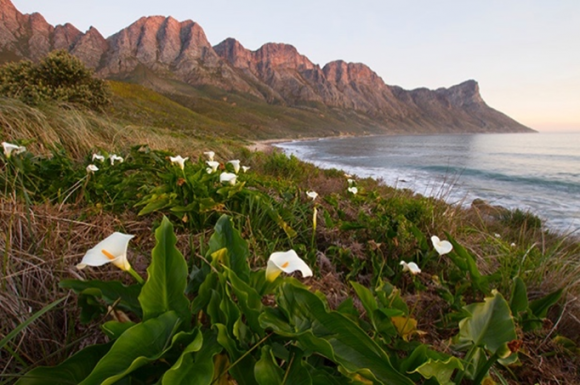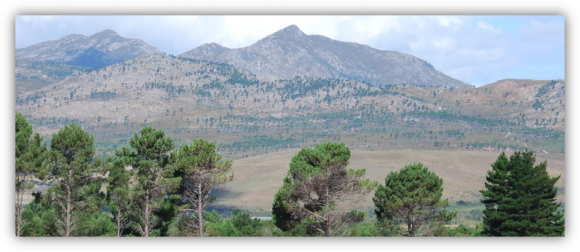It is frequently assumed that biological invasions have negative impacts on our ecosystems by eroding biodiversity, changing the ways in which ecosystems function, and negatively affecting benefits to humans. However, compared to other facets of invasion science, the impacts of biological invasions have been understudied globally. This is also the case in South Africa, despite the country’s substantial investment on dealing with invasions. A robust understanding is clearly needed to justify the substantial costs of managing invasive species in our freshwater, marine and terrestrial ecosystems.
A review of the peer-reviewed literature was undertaken at the Centre for Invasion Biology (C·I·B) to determine the level of understanding of the impacts of invasions of all taxonomic groups in all natural and semi-natural ecosystems in South Africa. The study found 123 published studies that documented the impacts of 71 invasive alien species in South Africa, about 5% of the country’s naturalized alien biota. The authors of the review published in the journal Biological Invasions were C·I·B core team members Brian Wilgen, Dave Richardson (both at Stellenbosch University) and Tsungai Zengeya of the South African National Biodiversity Institute. The paper examined all cases where the impacts of invasions had been quantified in the field, to provide the best possible estimates of the impacts in South Africa.
The review found that many invasive alien species alter change habitat suitability, pollination networks or seed dispersal mechanisms among native species, threaten native species through hybridization and predation, and impact negatively on hydrological cycles and nutrient dynamics.
Trees and shrubs accounted for more than half of the species for which impacts have been quantified, but impacts have also been assessed in most other groups of plants and animals (see Figure).
Prominent landscape-scale impacts for which good data are available include reductions in water resources, the attrition of native biodiversity, reductions in rangeland productivity, predation of marine birds and freshwater fishes, and disease organisms affecting native mammals and trees. These impacts come at a huge cost to the economy of South Africa. For example, one study estimated that the economic losses due to invasive alien plants included the loss of water resources worth US$ 773 million per year, rangeland productivity worth US$ 45 million per year), and biodiversity losses worth at least US$ 57 million per year.
“We have made a lot of progress towards developing a better understanding of biological invasions over the past 20 years” says Brian van Wilgen, “but our understanding remains fragmentary”. He points out that the overall extent of impacts is increasing rapidly as many invasive species enter exponential phases of spread and densification and as the duration of invasions increases.
Read the full paper
van Wilgen, BW, Zengeya, TA, Richardson, DM (2021). A review of the impacts of biological invasions in South Africa. Biological Invasions. https://doi.org/10.1007/s10530-021-02623-3
For more information, contact Brian van Wilgen at bvanwilgen@sun.ac.za




